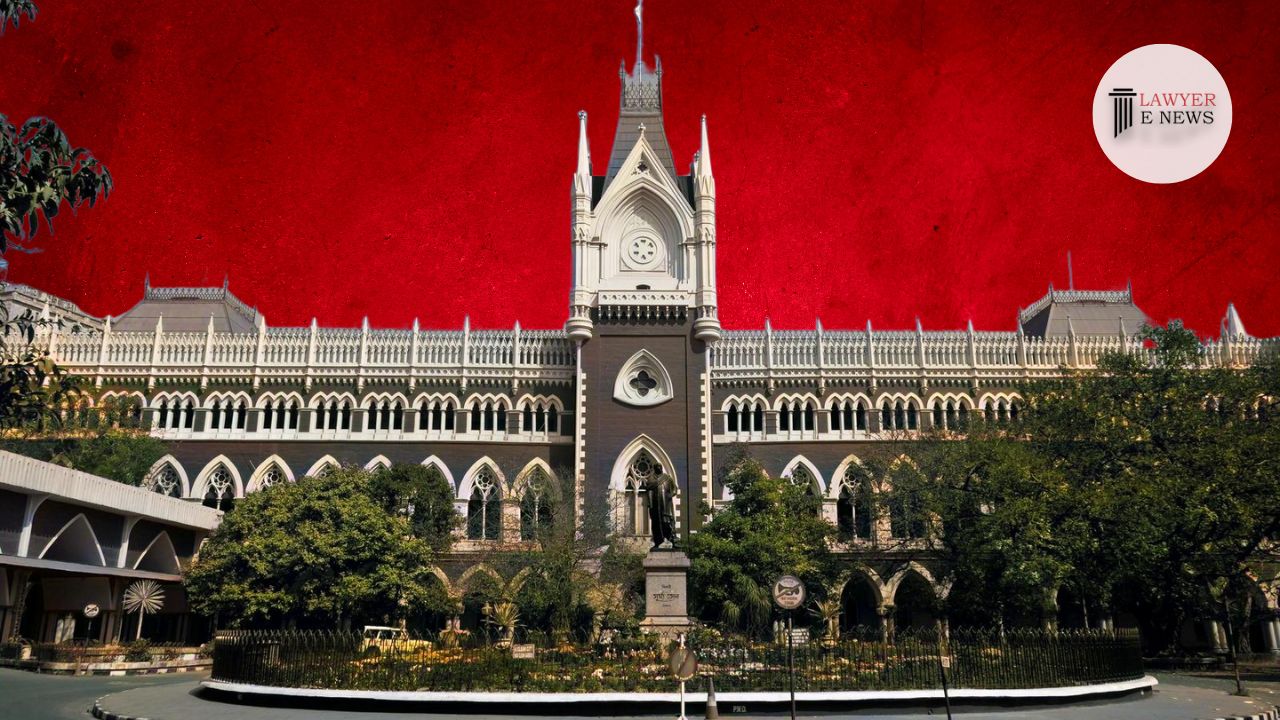-
by Admin
15 February 2026 5:35 AM



Calcutta High Court, led by Justice Suvra Ghosh, ruled in favor of granting bail to Manik Bhattacharya in the case of Manik Bhattacharya v. Enforcement Directorate Kolkata Zonal Office-II (CRM (SB) 72 of 2024). Bhattacharya, the former President of the West Bengal Board of Primary Education and a sitting member of the Legislative Assembly, was arrested under the Prevention of Money Laundering Act, 2002 (PMLA) on October 10, 2022, for his alleged involvement in a recruitment scam. The court's ruling emphasized the importance of Article 21 of the Constitution, which guarantees the right to life and personal liberty, stating that the petitioner's prolonged incarceration could not be justified.
Bhattacharya was arrested following allegations that he had received Rs. 700,000 from 44 candidates for their appointments as primary school teachers. This arrest was based on statements and documents including the testimony of a co-accused, Tapas Kumar Mondal. The petitioner contended that these statements did not directly implicate him in the transfer of illicit money and that the Enforcement Directorate (ED) had not presented concrete evidence to prove his involvement. His bail pleas were previously denied by the Calcutta High Court in June and November 2023 on the basis of the severity of the allegations and the ongoing investigation.
The key legal issues revolved around whether the petitioner's arrest complied with Section 19(1) of the PMLA, whether there was sufficient evidence to invoke Section 3 of the PMLA, and whether his right to bail under Article 21 of the Constitution was being violated due to prolonged detention.
Compliance with Section 19(1) of the PMLA: Bhattacharya argued that he was not informed of the grounds of his arrest, rendering the arrest procedure illegal. However, the court observed that the arrest memo disclosed that the petitioner had been given the opportunity to go through each page of the grounds for his arrest, which he refused to accept.
Evidence of Proceeds of Crime: The petitioner argued that the ED had not established a direct link between him and the proceeds of crime, which is a prerequisite for offenses under Section 3 of the PMLA. He cited the Supreme Court's ruling in Vijay Madan Lal Chaudhury and Others v. Union of India and others to support his contention that both the existence of proceeds of crime and the accused's involvement are necessary to sustain a money laundering charge. The ED, on the other hand, presented evidence including witness statements, documentary evidence, and a money trail to substantiate their case.
Right to Bail and Article 21: The court emphasized that while Section 45 of the PMLA sets stringent conditions for bail, these conditions must be balanced with the constitutional right to a speedy trial under Article 21. The court referred to the Supreme Court's judgment in Manish Sisodia v. Directorate of Enforcement, which underscored the importance of this right. The court noted that Bhattacharya had been in custody for nearly two years, with charges yet to be framed, suggesting an indefinite delay in the trial.
The court scrutinized various aspects of the case, including the prolonged detention of the petitioner, the nature of evidence presented, and the likelihood of the trial concluding within a reasonable timeframe. Key observations included:
Documentary Evidence: The court noted that the case was primarily based on documentary evidence, which had already been collected and was in the custody of the ED. This minimized the risk of evidence tampering if the petitioner were released on bail.
Delay in Trial: Given the complexity of the case, involving thousands of pages of documents and numerous witnesses, the court acknowledged that the trial was unlikely to conclude in the near future. This delay, coupled with Bhattacharya’s prolonged incarceration, raised concerns about a potential violation of his right to a speedy trial.
Conditions of Bail: In granting bail, the court imposed stringent conditions to mitigate any potential risks. Bhattacharya was required to surrender his passport, refrain from leaving the jurisdiction of the trial court without permission, and avoid any form of contact with witnesses. The court emphasized that these conditions were necessary to ensure the integrity of the judicial process.
Impact of Article 21: Justice Suvra Ghosh underscored the principle that "bail is a rule and refusal is an exception," especially in cases of prolonged pre-trial detention. The judgment highlighted that "further detention of the petitioner shall not serve any purpose and his unlimited detention shall deprive him of his fundamental right to liberty under Article 21 of the Constitution." The court also referenced the Supreme Court's stance that if the State cannot ensure a speedy trial, the seriousness of the alleged crime should not override the accused's fundamental rights.
The ruling to grant bail to Manik Bhattacharya underscores the balance courts must maintain between the stringent provisions of laws like the PMLA and the fundamental rights guaranteed by the Constitution. The judgment serves as a reminder that even in cases involving serious allegations, the right to a speedy trial and personal liberty cannot be overlooked. The decision reflects a careful consideration of the evidence, the nature of the offense, and the need to uphold constitutional principles.
Date of Decision: September 12, 2024
Manik Bhattacharya v. Enforcement Directorate Kolkata Zonal Office-II
